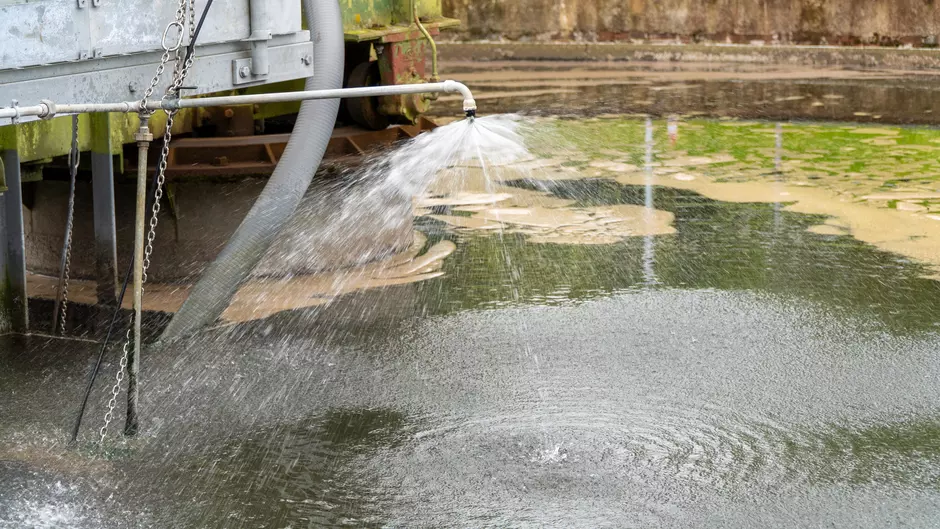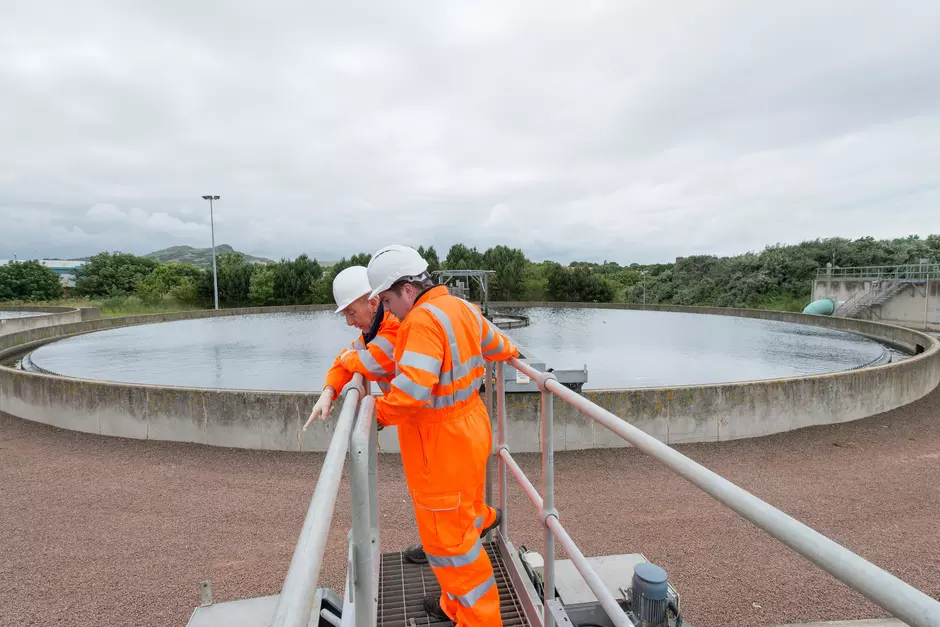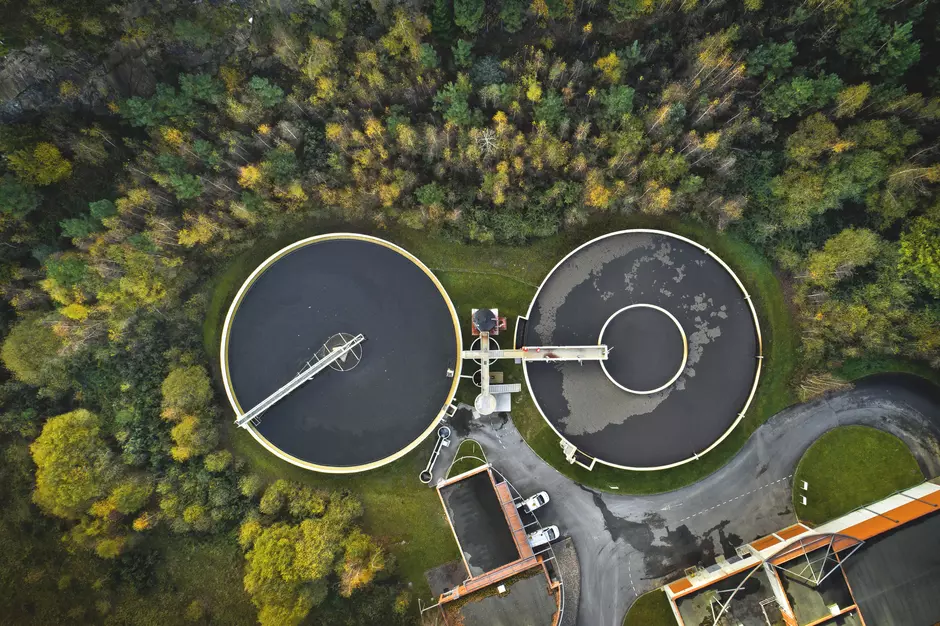Water is a critical resource for industrial operations, yet mounting pressures from climate change, environmental degradation, and population growth are driving the UK government to tighten regulations and reform water management.
At Veolia, we can help industrial water users to navigate new legislation, regulatory changes, and shifting policy priorities that will impact your costs, compliance responsibilities, and long-term planning to safeguard water resources.
We’ve highlighted four of the greatest challenges for water management in 2025 and what you can do now to stay ahead of the curve.
Water Scarcity in the UK
The UK Government recognises water scarcity as an escalating issue. In response, the Environment Agency has introduced stricter controls on water extraction, particularly in water-stressed regions, to ensure sustainable allocation, along with regulators who are tightening abstraction licensing, pushing for increased efficiency, and incentivising water reuse.
Additionally, the government is investing in large scale-infrastructure projects such as reservoir expansions, desalination trials, and interregional water transfers to secure future supply.
For industrial users, these changes mean stricter conditions on abstraction permits, higher costs for water-intensive processes, and growing expectations to incorporate water-saving measures. Businesses that fail to improve efficiency may face restricted access or financial penalties.
With more than 150 years' experience in the water industry, we can help you design effective mitigation and conservation techniques into your operations, helping you reduce costs whilst building climate-resilient strategies to help your business thrive in the future.


Emerging Contaminants in Water
The government is intensifying its focus on emerging contaminants, including microplastics, pharmaceuticals, and PFAS (per- and polyfluoroalkyl substances). Stricter discharge limits are being introduced, requiring industries to monitor, treat, and report pollutants more comprehensively.
The Water (Special Measures) Act 2025 expands regulatory enforcement powers, holding water companies and industries accountable for the quality of their wastewater outputs. This means greater scrutiny of effluent treatment systems and potential liability for environmental damage.
There are also growing challenges around the spreading of biosolids to land as an agricultural fertiliser due to stricter regulatory compliance and potential environmental risks from contaminants. Wastewater byproducts are highly valuable within the circular economy though and at Veolia, we can help you turn the rich organic content of your effluent water into biogas, biomethane, and even treat it for reuse as an agricultural fertiliser. This is an ideal source of renewable energy which can sustainably power your operations, as well as a nutrient rich product that can be treated and used domestically to support the UK’s agricultural industry.
Veolia can help to assess your treatment processes and working with our colleagues in Veolia Water Technologies and Veolia Water Technologies and Solutions, we can implement innovative solutions, from advanced filtration to removal technologies that will not only help your business remain compliant, but protect the local environment from harmful pollutants.
The Rising Cost of Water
Industrial users should prepare for increasing costs associated with water procurement and wastewater disposal. Regulatory changes are driving investments in ageing infrastructure, and these costs will be passed down through water tariffs, many of which are weighted towards this first year (2025) of the latest water framework AMP (asset management period), so increases are expected soon.
The government is also encouraging a ‘polluter pays’ model, where industries that contribute to water pollution will bear higher charges.
The recent PR24 (2024 Price Review) determinations from Ofwat have confirmed significant increases in water bills, reflecting the need for water companies to invest in improving services and resilience. However, some companies have appealed these determinations to the Competition and Markets Authority (CMA), arguing for even higher allowances to fund additional infrastructure and operational improvements. If these appeals are successful, industrial customers could see further increases beyond those currently projected.
Financial penalties for inefficient water use and excessive discharge are also expected to rise but Veolia Retail Water specialises in helping large industrial customers reduce water costs and risks. Working with colleagues from across Veolia, we take a systematic approach to reducing water costs through monitoring, benchmarking, analysis and innovative solutions. Adopting on site circular, closed loop water management plans will also become more economical as these discharge costs increase.


The Independent Water Commission and Future Reforms
The most notable development in the world of water since Labour came into government, was the launch of the Independent Water Commission led by Sir Jon Cunliffe. The commission is tasked with reviewing regulatory structures, assessing investment in infrastructure, and ensuring that water services remain resilient in the face of climate change and population growth.
A key area of focus for the commission is how the water sector can better balance environmental protection with economic viability. This may lead to new policies promoting mandatory water reuse in industrial settings, increased transparency in infrastructure planning, and stronger enforcement against polluters. The commission’s recommendations could also influence the way industrial water tariffs are structured, potentially leading to more dynamic pricing models based on efficiency and sustainability metrics.
The commission published its Call for Evidence on the 27th February and applications are open until 23rd April. This is your opportunity, as an industrial water user, to help shape policies that reflect your operational needs while aligning with national sustainability goals. Companies that proactively contribute to the commission’s consultations and pilot new water-saving technologies may be well-placed to benefit from regulatory incentives and funding opportunities in the future.
What to do next
2025 is already shaping up to be a significant year for the water sector and it’s integral that we engage with the development process now and play a role in an ambitious, long-term approach to resetting the water sector.
Beyond working with DEFRA and government officials to ensure the right policies are put in place, we can also support your transition to a circular economy today, by optimising your operational assets and processes to improve efficiency. By embracing water stewardship to preserve water, you will enhance your brand’s reputation, reduce your carbon footprint, build resilience against regulatory pressures, and secure long-term economic benefits - helping to protect both profits and the planet.
To find out how we can help,


